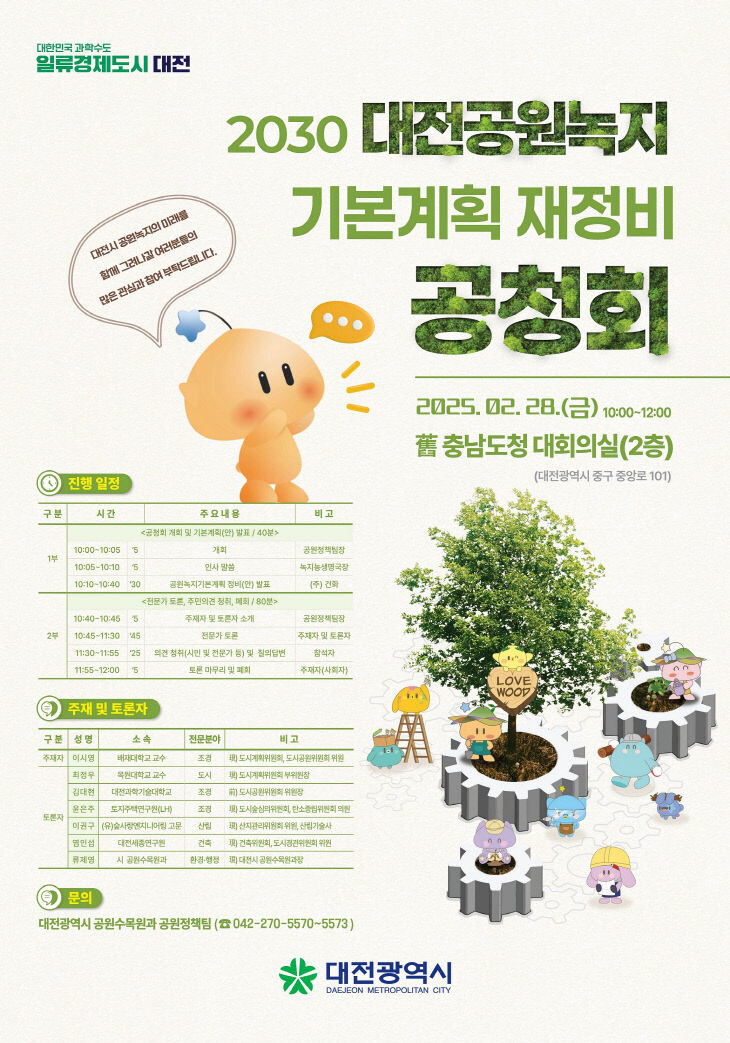
Daejeon City will be sharing its vision for the future of parks and green spaces with its citizens, aiming to transform the city into a sustainable green metropolis.
A public hearing will be held on February 28th at the old Chungcheongnam-do Provincial Office's conference room to gather feedback from experts and citizens on the "2030 Daejeon Parks and Green Spaces Master Plan."
The city plans to comprehensively review the existing master plan and present a strategic direction that prepares for the future in line with the changing policy environment.
The Parks and Green Spaces Master Plan is a 10-year statutory plan that is established to systematically create and manage parks and green spaces. It is being revamped every five years to enhance its effectiveness.
The core of this plan is to embody the vision of "Daejeon, a city made green with nature." The plan aims to develop parks from simple resting spaces into urban assets that encompass culture, history, and health, and to expand easily accessible, community-based green spaces for all citizens.
To achieve this, four goals and promotion strategies have been established: ▲Creating premium parks that enhance landmarks and urban competitiveness ▲Building parks for everyone that realize customized parks for each life cycle ▲Strengthening the connection of urban infrastructure to improve accessibility ▲Advancing operation and management to strengthen park services.
This public hearing will feature expert presentations and a free discussion where citizens can directly share their diverse opinions.
Any interested citizen can participate, and opinions on the "2030 Daejeon Parks and Green Spaces Master Plan (draft)" can be submitted by March 7th through visits, fax (☎042-270-5569), or email.
Park Young-cheol, Director of the Green Agriculture and Life Bureau of Daejeon City, said, "This public hearing is an important opportunity to share Daejeon's vision for parks and green spaces with citizens, targeting the year 2030." He added, "We will prepare specific implementation plans so that green spaces can act as an element that enhances urban competitiveness, and we will establish more effective policies by reflecting the diverse opinions of citizens."
[Copyright (c) Global Economic Times. All Rights Reserved.]






























